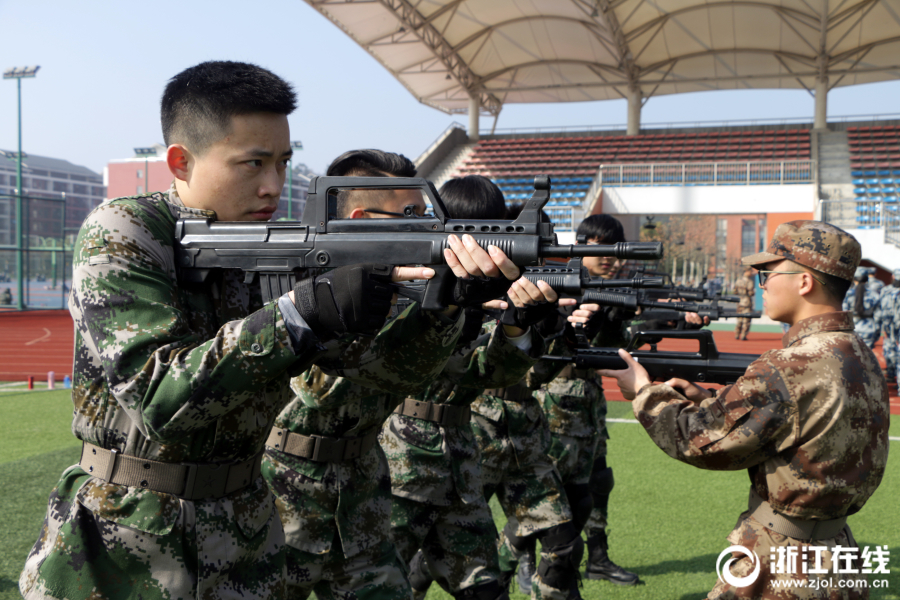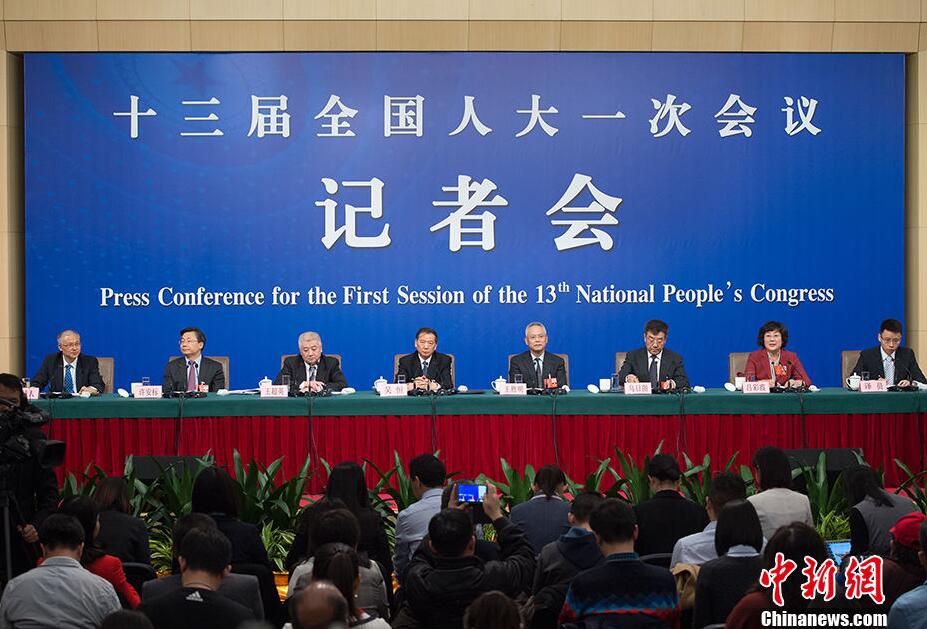
1. The five functions of the operating system are processor management, memory management, device management, file management and job management. Processor management The most basic function of processor management is to process interrupt events. After configuring the operating system, various events can be processed.
2. The main function of the computer operating system is process management, and its work is mainly process scheduling. In the case of a single user and a single taskNext, the processor is only monopolized by one user's task, and the process management work is very simple.
3. Operating System (abbreviation: OS) is a group of interrelated system software programs that supervise and control computer operation, use and run hardware, software resources and provide public services to organize user interaction.
4. Five major management functions of the operating system: (1) Job management: including tasks, interface management, human-computer interaction, graphical interface, voice control and virtual reality, etc. ( 2) File management: also known as information management. ( 3) Storage management: The essence is the management of storage "space", which mainly refers to the management of the main memory.
Any information system has five basic functions, namely: information collection and recording (input); information storage; information processing; information transmission; information output .
According to the functional introduction of the information system, the information system has five basic functions: input, storage, processing, output and control. Different functions have different functions, such as input function: the input function of the information system is determined by the purpose to be achieved by the system, the ability of the system and the permission of the information environment.
Five basic functions of the information system: input, storage, processing, output and control. Input function: The input function of the information system is determined by the purpose to be achieved by the system, the ability of the system and the permission of the information environment.Storage function: Storage function refers to the ability of the system to store various information and data. Mainly including: statistical functions.
The operating system has five functions: processor management: mainly controls and manages the work of the CPU. Storage management: mainly allocate and manage memory. Device management: mainly manage basic input and output devices. File management: responsible for the organization, storage, operation and protection of computer files.
The functions of the computer operating system include: processor management, memory management, device management, file management, job management and other functional modules. Processor management. The most basic function of processor management is to handle interrupt events. The processor can only detect interrupt events and generate interrupts and cannot process them.
The main function of the computer operating system is process management, and its main work is process scheduling. In the case of a single user and a single task, the processor is only monopolized by one user's task, and the work of process management is very simple.
The main functions of the operating system are process and processor management, job management, storage management, device management and file management, as follows: process and processor management. Because the execution of the program must rely on the processor, only one program flow can be processed and executed at any time. Homework management.
I) Processor management The most basic function of processor management is to handle interrupt events. The processor can only detect interrupt events and generate interrupts, and cannot handle these interrupt events. After configuring the operating system, all types of events can be handled.Another function of processor management is processor scheduling.
Five management functions of the operating system: job management: including tasks, interface management, human-computer interaction, graphical interface, voice control and virtual reality, etc. File management: also known as information management. Storage management: The essence is the management of storage "space", which mainly refers to the management of the main memory.

The storage management function of the operating system is to manage memory resources. It mainly realizes memory allocation and recovery, storage protection and memory expansion. The device management of the device management operating system is responsible for allocating and recycling external devices, and controlling external devices to operate according to the requirements of user programs.
The functions of the computer operating system include: processor management, memory management, device management, file management, job management and other functional modules. Processor management. The most basic function of processor management is to handle interrupt events. The processor can only detect interrupt events and generate interrupts and cannot process them.
The five functions of the operating system are processor management, memory management, device management, file management and job management.Processor management The most basic function of processor management is to process interrupt events. After configuring the operating system, various events can be processed.
UEFA Champions League standings-APP, download it now, new users will receive a novice gift pack.
1. The five functions of the operating system are processor management, memory management, device management, file management and job management. Processor management The most basic function of processor management is to process interrupt events. After configuring the operating system, various events can be processed.
2. The main function of the computer operating system is process management, and its work is mainly process scheduling. In the case of a single user and a single taskNext, the processor is only monopolized by one user's task, and the process management work is very simple.
3. Operating System (abbreviation: OS) is a group of interrelated system software programs that supervise and control computer operation, use and run hardware, software resources and provide public services to organize user interaction.
4. Five major management functions of the operating system: (1) Job management: including tasks, interface management, human-computer interaction, graphical interface, voice control and virtual reality, etc. ( 2) File management: also known as information management. ( 3) Storage management: The essence is the management of storage "space", which mainly refers to the management of the main memory.
Any information system has five basic functions, namely: information collection and recording (input); information storage; information processing; information transmission; information output .
According to the functional introduction of the information system, the information system has five basic functions: input, storage, processing, output and control. Different functions have different functions, such as input function: the input function of the information system is determined by the purpose to be achieved by the system, the ability of the system and the permission of the information environment.
Five basic functions of the information system: input, storage, processing, output and control. Input function: The input function of the information system is determined by the purpose to be achieved by the system, the ability of the system and the permission of the information environment.Storage function: Storage function refers to the ability of the system to store various information and data. Mainly including: statistical functions.
The operating system has five functions: processor management: mainly controls and manages the work of the CPU. Storage management: mainly allocate and manage memory. Device management: mainly manage basic input and output devices. File management: responsible for the organization, storage, operation and protection of computer files.
The functions of the computer operating system include: processor management, memory management, device management, file management, job management and other functional modules. Processor management. The most basic function of processor management is to handle interrupt events. The processor can only detect interrupt events and generate interrupts and cannot process them.
The main function of the computer operating system is process management, and its main work is process scheduling. In the case of a single user and a single task, the processor is only monopolized by one user's task, and the work of process management is very simple.
The main functions of the operating system are process and processor management, job management, storage management, device management and file management, as follows: process and processor management. Because the execution of the program must rely on the processor, only one program flow can be processed and executed at any time. Homework management.
I) Processor management The most basic function of processor management is to handle interrupt events. The processor can only detect interrupt events and generate interrupts, and cannot handle these interrupt events. After configuring the operating system, all types of events can be handled.Another function of processor management is processor scheduling.
Five management functions of the operating system: job management: including tasks, interface management, human-computer interaction, graphical interface, voice control and virtual reality, etc. File management: also known as information management. Storage management: The essence is the management of storage "space", which mainly refers to the management of the main memory.

The storage management function of the operating system is to manage memory resources. It mainly realizes memory allocation and recovery, storage protection and memory expansion. The device management of the device management operating system is responsible for allocating and recycling external devices, and controlling external devices to operate according to the requirements of user programs.
The functions of the computer operating system include: processor management, memory management, device management, file management, job management and other functional modules. Processor management. The most basic function of processor management is to handle interrupt events. The processor can only detect interrupt events and generate interrupts and cannot process them.
The five functions of the operating system are processor management, memory management, device management, file management and job management.Processor management The most basic function of processor management is to process interrupt events. After configuring the operating system, various events can be processed.
Free sports events uefa champions league app android
author: 2025-02-11 08:24 PAGCOR online casino free 100
PAGCOR online casino free 100
729.79MB
Check Casino Plus
Casino Plus
159.72MB
Check DigiPlus fair value
DigiPlus fair value
967.75MB
Check Hearthstone deck
Hearthstone deck
248.34MB
Check Casino Plus GCash login
Casino Plus GCash login
525.39MB
Check Hearthstone arena
Hearthstone arena
545.63MB
Check UEFA TV
UEFA TV
465.74MB
Check Bingo Plus stock
Bingo Plus stock
925.57MB
Check Hearthstone deck
Hearthstone deck
262.94MB
Check Bingo Plus
Bingo Plus
215.83MB
Check PAGCOR online casino free 100
PAGCOR online casino free 100
246.56MB
Check Hearthstone Arena Tier List
Hearthstone Arena Tier List
173.53MB
Check Hearthstone deck
Hearthstone deck
162.19MB
Check UEFA EURO
UEFA EURO
436.28MB
Check Champions League
Champions League
397.85MB
Check Casino free 100 no deposit
Casino free 100 no deposit
414.27MB
Check Champions League
Champions League
926.63MB
Check UEFA Europa League
UEFA Europa League
663.68MB
Check Casino redeem
Casino redeem
716.67MB
Check Arena Plus login
Arena Plus login
246.76MB
Check European Cup live
European Cup live
489.15MB
Check Bingo Plus stock
Bingo Plus stock
966.87MB
Check Champions League
Champions League
876.91MB
Check UEFA EURO
UEFA EURO
333.79MB
Check Europa League app
Europa League app
443.76MB
Check bingo plus update today
bingo plus update today
243.25MB
Check UEFA live free
UEFA live free
494.15MB
Check UEFA Europa League
UEFA Europa League
388.66MB
Check UEFA European championship
UEFA European championship
792.99MB
Check UEFA EURO
UEFA EURO
678.21MB
Check Hearthstone Wild Decks
Hearthstone Wild Decks
669.49MB
Check Champions League
Champions League
193.14MB
Check UEFA Champions League live streaming free
UEFA Champions League live streaming free
583.17MB
Check TNT Sports
TNT Sports
288.58MB
Check DigiPlus
DigiPlus
641.96MB
Check Hearthstone Arena class tier list 2024
Hearthstone Arena class tier list 2024
737.34MB
Check
Scan to install
UEFA Champions League standings to discover more
Netizen comments More
2132 Casino Plus
2025-02-11 08:50 recommend
1574 UEFA live free
2025-02-11 08:24 recommend
137 European Cup live
2025-02-11 08:12 recommend
367 Casino free 100 no deposit
2025-02-11 07:28 recommend
1781 DigiPlus fair value
2025-02-11 07:21 recommend